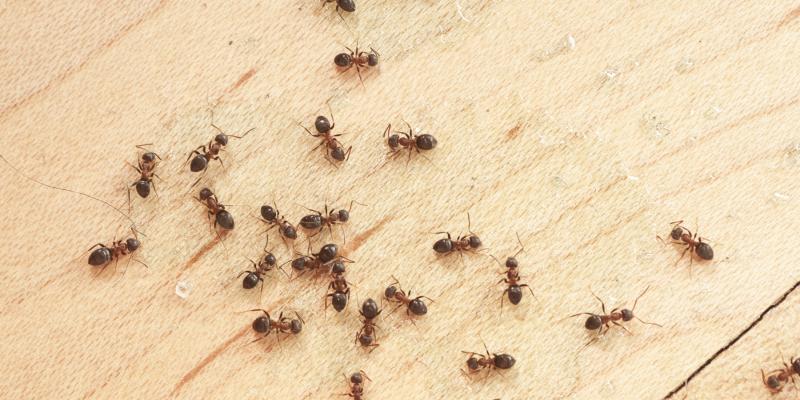Last Updated: 05/05/2021
Estimated Reading Time: 4 minutes
Despite their size, ants have an incredible impact on the environment. These small scavengers are considered a number-one predator of other insects, regularly feasting on spiders, beetles, and even other ants. Ants also help to break down decomposing material, which is why they can often be found sneaking into kitchens in search of food scraps. Currently, there are over 22,000 species of ants recorded, with 12,000 fully identified. It is estimated that there are 10,000 trillion ants worldwide, weighing more than all of mankind combined.

What Are Army Ants?
Army ants are a species of ants best known for their large, aggressive colonies. There are several different varieties of Army Ant, most notably the tropical variant, which is famous for swarming and devouring everything in their path. Thankfully, this breed of army ant is not found in the U.S. The U.S. does have army ants, primarily located in southern, humid states, but they do not display the same levels of aggression as tropical army ants. US army ants feed mainly on smaller species of ants but can occasionally kill animals such as chickens, goats, lizards, snakes, and other small animals. These ants are known to have nests of several million members, and when they hunt, they send out armies of up to 200,000 ants in their never-ending quest for food. If faced with a body of water, the armies are even able to form a ball, allowing them to cross small bonds and streams.
How Ant Colonies Work and Survive
To ensure survival, worker ants are sent out in armies in search of food and water. Once a reliable food source is found, the ants will bring the food back to the colony. Along the way, they will mark their trail with a chemical scent, called pheromone, which helps other worker ants to locate the food source. In some cases, if the food source is too far away from the colony, army ants will relocate the nest to be closer to the source.
The Ant Colony Hierarchy
Highly organized, army ants have a strict hierarchy ensuring that the colony is fed, protected, and growing. Each ant within the colony has a very important role to play:
- The queen is the head of the colony and ensures the nest’s survival by laying thousands of eggs. She is generally larger and can live as long as 30 years.
- The workers are infertile females who maintain the nest by forage for and transporting food, protect the colony, and tend to the queen’s offspring.
- The drones are male ants whose role is to fertilize the queen’s eggs, after which they often die.
Ants vs Termites
While ants and termites are often mistaken for each other, the easiest way to tell them apart is by body shape. While termites have two main body segments (a head and a thorax), an ant has three—a head, thorax, and abdomen.
Why Are Ants In My House?
Generally, ants will come into your home in search of food. Once a food source is located, more ants will follow, leading to an infestation. In some cases, you may see swarming ants, which indicate that a new queen ant is in search of a location where she can start a new colony.
How To Get Rid Of Ants
Because worker ants forage for food that supplies the queen and the entire colony, the most effective way to get rid of ants is by using products which the ant perceives as food. By ingesting the product and spreading it through the nest, the ants will eventually die out, eliminating them from your home.
At Blades of Green, we use products that entice the ant to ingest the product, carry it back to the nest, and share the bait with the rest of the nest. Often the product will eliminate 98% of the colony within 24-48 hours! By plugging small holes ants could use to get into your home, spraying the exterior of the house, and placing bait for the worker ants to take back to the colony, we can help you keep ants out of your home.
Have a Question About Lawn Care? Ask the Experts!
Having a lawn care problem that you can’t seem to solve? Send your question to our expert technicians and get the answers you need to get a healthy, beautiful lawn.
Ask a Lawn Care QuestionConsider Professional Lawn Care
End the guesswork and stress of lawn maintenance. Let our experienced team put their expertise to work making your lawn healthy and beautiful.
Get a FREE Lawn Care Quote Now
Quick Quote Form
"*" indicates required fields
